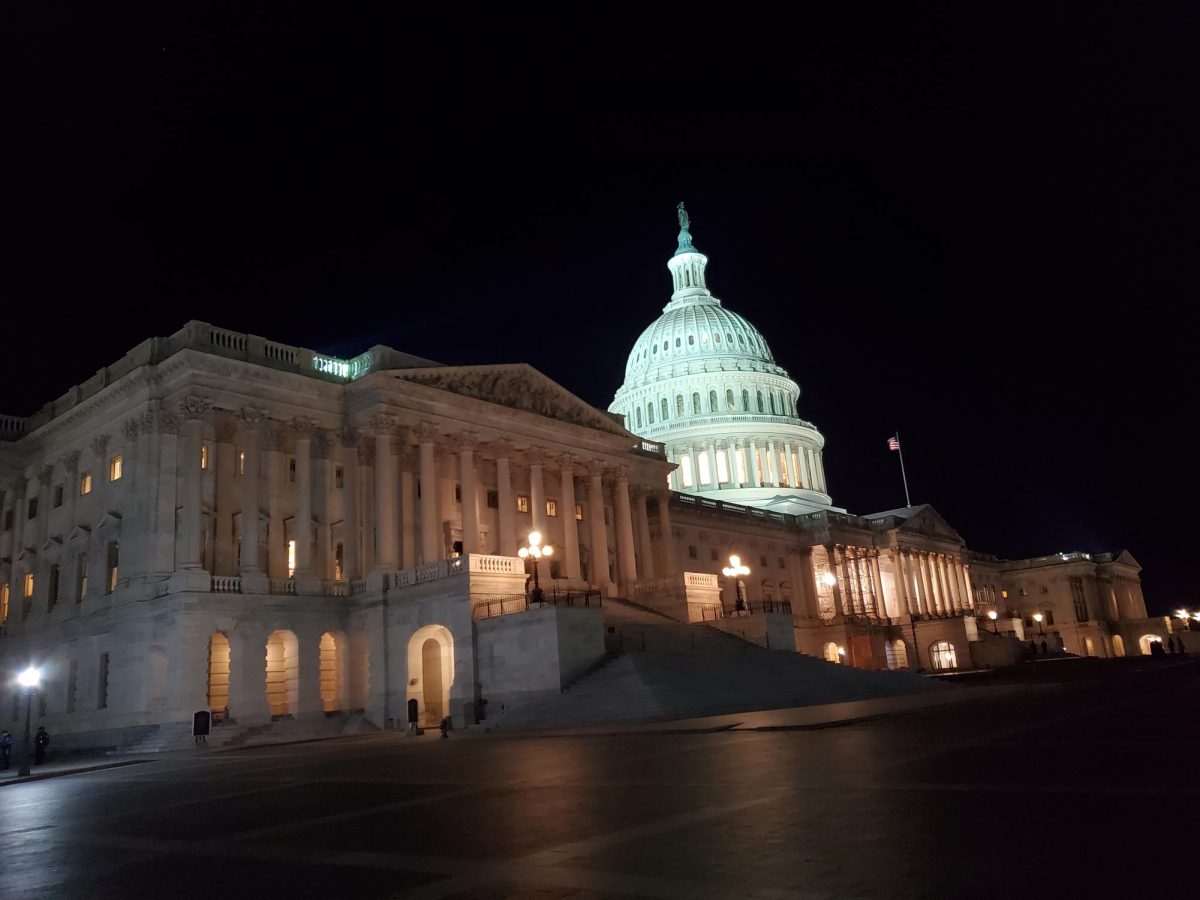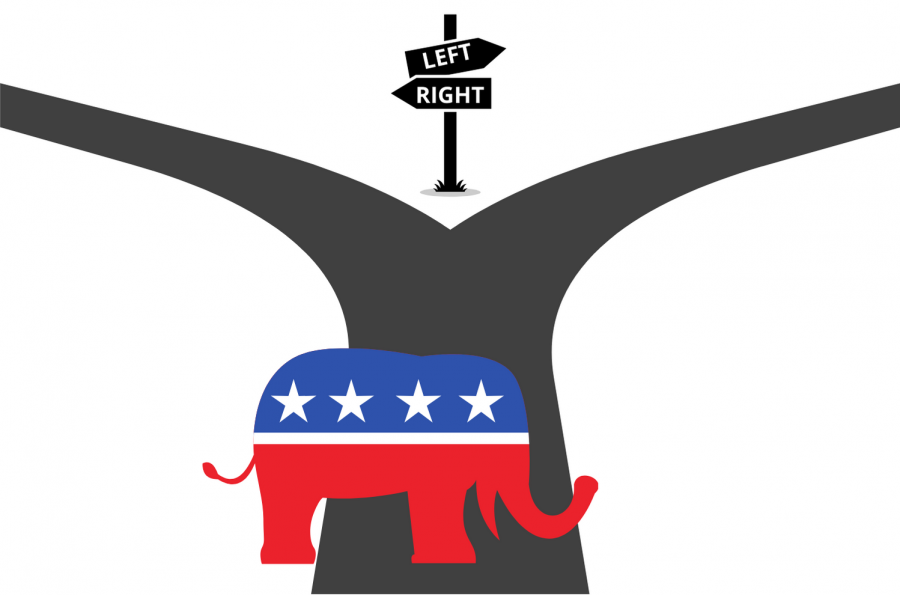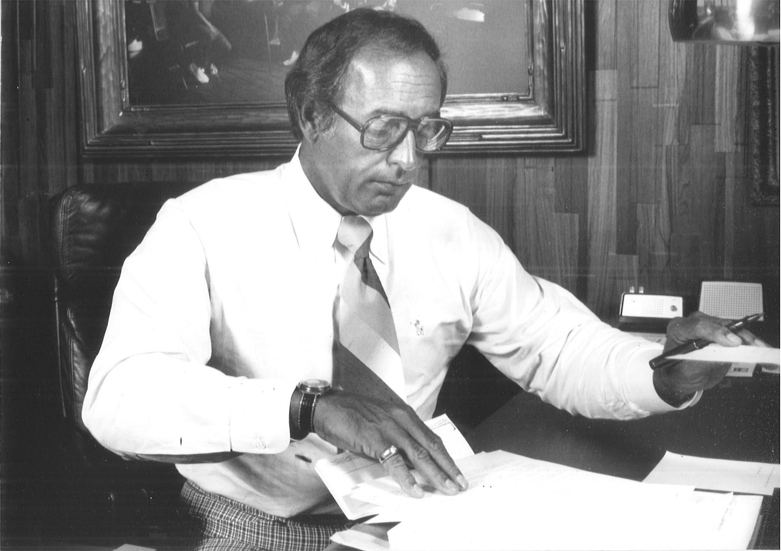That’s how far from the presidency either Vice President Joe Biden or Rep. Paul Ryan (R-Wisc.) will be for the next four years.
The two candidates battled over the land’s second-highest office Thursday night during a 90-minute debate.
Calvin students had mixed reviews on how the candidates performed.
“I still haven’t come to a decision on who was the winner,” said junior Elena Buis, an Obama supporter.
“It was a normal debate in the sense that afterwards both sides said they won,” said Mikael Pelz, a political science professor at Calvin. “There was no decisive victory.”
And according to a CNN poll, the American public is divided over who won as well. Paul Ryan edged out Joe Biden, 48 percent to 44 percent, a statistically insignificant difference.
But for most people, Biden’s animated speaking style and laughing during Ryan’s responses was in the spotlight following the debate.
“Biden’s laughing and his interrupting … was so condescending. His tone of voice was almost constantly accusatory and on edge,” said Buis. “Watching him was like watching a slightly tipsy uncle go off on a political rant at Thanksgiving dinner, you’re just like, ‘Um, I’m gonna leave now, you’re making me uncomfortable.’”
Junior Rachel Hekman, a Romney supporter, was slightly more forgiving, but still did not approve of Biden’s aggressive tone.
“Biden was strong in his numbers and personality: he appeared dominant and knowledgeable. At the same time, his forcefulness was condescending,” she said. “Rather than coming across as the better debater, he was patronizing and just plain rude.”
Pelz said that, while Biden may have been trying to make up lost ground from Obama’s weak first debate, his aggressiveness may hurt him.
“Some democrats would say that Biden was just as aggressive as Mitt Romney was the week before, but I think Biden went over the line,” he said.
“When we think about how the public views these things, they look at the body language of each candidate,” Pelz continued. “You have this laughing, wildly-gesturing vice president, and I think the public, particularly women and independents, are going to be turned off by that.”
While Biden may have turned off some independents, Pelz said that Biden gave the Democratic base something to rally around.
“I think Biden gave the Democrats enough red meat in terms of going after Mitt Romney,” he said. “I think Democrats were heartened by the fact that Biden was able to go on the offensive and really attack the other side.”
Senior Erin Coggin, a Romney supporter, wasn’t so sure.
“Honestly, you vote for the top of the ticket,” she said. “Just because Biden showed up more than Obama did doesn’t make it okay for Obama to do poorly. Ultimately, Joe Biden isn’t in the White House.”
Even Nigerian student Jonathan Eigege tuned in to the American vice presidential debate.
“Looking from the outside, it seems America just elects the opposition party every eight or four years just so they undo what the incumbent has done, failing to realize that this means America doesn’t really move forward,” he said.
Eigege supports Obama, saying that it would help provide continuity in the government.
Opinions also differed on Paul Ryan’s performance.
“Ryan was calm and collected,” said Hekman. “He didn’t take Biden’s bait and was polite throughout the event, waiting his turn to assert his ticket’s superiority. On the other hand, he seemed vague, at times not answering the question directly.”
But for Buis, the “calm and collected” approach wasn’t memorable.
“Was this guy even in the debate?” asked Buis. “Next to Biden, he seemed very forgettable.”
Pelz said that, while Ryan didn’t shine in the debate, he accomplished the main goal of looking presidential — something that 2008 nominee Sarah Palin struggled with.
“I think that Ryan was able to hold his own,” said Pelz. “There were no questions about whether he would be able to be vice president.”
Overall, the vice presidential debate is not likely to make a difference in the eyes of many Calvin students — or voters in general.
“I doubt this debate will affect the election outcome,” explained Christina Weller, a senior who supports Romney. “Biden came out much stronger than I expected him to, but Ryan did well, especially not having much experience with debating. I think both candidates did equally well.”
Hekman agreed. “Debates mean little in terms of my vote,” she said. “By the time the month before the election rolls around, I’ve already researched the candidates thoroughly and made my choice.”
“The whole question of ‘did it really matter?’ is a fair question,” said Pelz. “This probably will not change the race in any way. It won’t change the narrative of the race.”






